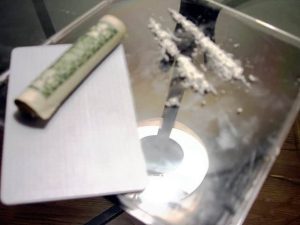About Mephedrone
Mephedrone, also called 4-methylmethcathinone (4-MMC), or 4-methylephedrone is a synthetic stimulant. A stimulant is a psychoactive drug which induces temporary improvements in mental and physical function. Mephedrone is an entactogen drug. It is part of a class of psychoactive drugs that produce distinctive emotional and social effects. This is similar to those of Ecstasy (MDMA).
Mephedrone is an amphetamine and cathinone class drug. An amphetamine is a drug with a stimulant effect on the central nervous system. It can be physically and psychologically addictive when used too much. Cathinone is a naturally occurring stimulant present in the Khat plant. Its structure and effects are similar to those of ephedrine and amphetamine. Those who have used mephedrone say the drug increases feelings of alertness, restlessness and gives the feeling of stimulation. The most general description of its effects is making the user feel more confident and talkative. The effects of mephedrone, like cocaine, seem to last about an hour before wearing off. Most users say mephedrone’s effects are a combination of ecstasy and cocaine.
The growing problem
The problem with mephedrone seems to be getting worse and worse. A recently conducted survey claims that some three in ten people who take the drug show symptoms linked to dependence such as withdrawal symptoms and failed attempts to stop using it, according to a survey of 100 people. Mephedrone was a popular “legal high” before it’s ban in the UK in April 2011. It was made a class B drug after being linked to the deaths of two teenagers. Although later reports established the drug had not been responsible, experts say it can lead to sleeping problems, paranoia and other mental health disorders. Earlier this summer the Home Office made reports that mephedrone is the second most common drug to use by 16 to 24 year olds in Britain, amounting to more than four per cent in the past year.
The survey, compiled by King’s College London researchers and the MixMag clubbing magazine, claims many users exhibit behaviour typical of addiction such as higher tolerance, increased usage and sacrificing other activities in order to take it.
It is true that addiction can only officially be diagnosed by a consulting doctor. But, a classification system used by the researchers states that anyone exhibiting three or more of these symptoms may be dependant. The researchers found that three in ten respondents could be classified in this way. Yet, a third of all participants admitted they were worried about their use of the drug and 15 per cent said their family or friends were concerned.
Getting help
Due to the fact that mephedrone used to be legal, those that abuse the drug do not necessarily see it as a problem as they do not associate drug addiction with legal substances. Mephedrone must be recognised as a highly addictive drug and if you are aware of anyone who you may think has a problem, seek help as soon as possible.
Learn more about the dangers of drug addiction.
The Haynes Clinic is a drug and alcohol addiction treatment centre. For free and confidential advice, please call 01462 851 414

